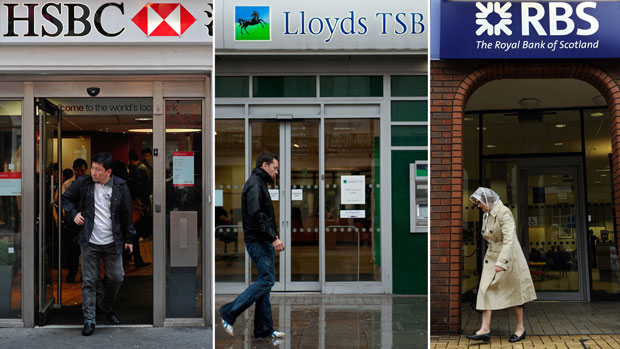Will low-interest rates kill free banking?
Declining margins could mean banks move towards "fee-based and utility services"

A free daily email with the biggest news stories of the day – and the best features from TheWeek.com
You are now subscribed
Your newsletter sign-up was successful
Free banking may become a thing of the past in the not-too-distant future if weak growth and ultra-low rates persist, the IMF warns.
In many countries around the world, among them the UK, customers are generally not charged for opening or holding money in a standard bank account.
Instead, banks make money by using their low-interest deposits to lend funds to other people in the form of mortgages and credit cards that attract a much higher interest charge.
The Week
Escape your echo chamber. Get the facts behind the news, plus analysis from multiple perspectives.

Sign up for The Week's Free Newsletters
From our morning news briefing to a weekly Good News Newsletter, get the best of The Week delivered directly to your inbox.
From our morning news briefing to a weekly Good News Newsletter, get the best of The Week delivered directly to your inbox.
But with many loans tethered to the central bank's base interest rate, the "net interest margin" of banks – the difference between the rates paid out to deposit holders and charged to borrowers that is akin to their profit margin – has declined.
This is why British banks are reporting a squeeze on their underlying profits. The Bank of England's base rate is currently at an all-time low of 0.25 per cent.
Low rates are not the only problem. Growth rates are also low and yields on safe haven assets like government bonds, which are a key determinant for pension fund returns, are depressed.
To boot, "demographic change was likely to reduce demand for credit from households and businesses but increase the need for easy-access accounts, payments services and products such as health insurance," says the Daily Telegraph.
A free daily email with the biggest news stories of the day – and the best features from TheWeek.com
The net result of this is that banks will "evolve towards provision of fee-based and utility services" like life insurance, the IMF says.
For consumers, the result will be that more banks will probably charge just for depositing money. There could also be more competition for other financial services products.
Other changes in the market – if the low-rates-low-growth environment continues – could mean that smaller challenger banks are subsumed by their larger peers, the IMF says.
-
 The EU’s war on fast fashion
The EU’s war on fast fashionIn the Spotlight Bloc launches investigation into Shein over sale of weapons and ‘childlike’ sex dolls, alongside efforts to tax e-commerce giants and combat textile waste
-
 How to Get to Heaven from Belfast: a ‘highly entertaining ride’
How to Get to Heaven from Belfast: a ‘highly entertaining ride’The Week Recommends Mystery-comedy from the creator of Derry Girls should be ‘your new binge-watch’
-
 The 8 best TV shows of the 1960s
The 8 best TV shows of the 1960sThe standout shows of this decade take viewers from outer space to the Wild West